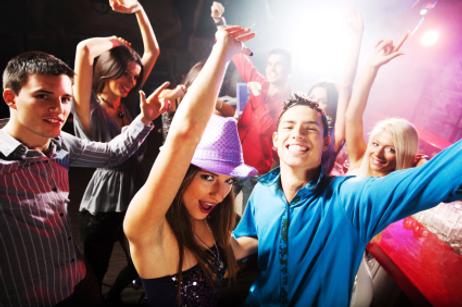While high school dances were originally established as an appropriate social outlet, dances today have evolved to push the limits of new boundaries. Current school leaders assert that the music played at dances is increasingly suggestive, while students’ dance moves have become more overtly sexual.
With the rise in questionable behavior and elicit dance moves at school events, many school leaders are banning dancing-based events, or in some cases, even prohibiting some students to attend. In an attempt to enforce modest conduct in co-ed interactions, schools are trying to navigate the fine line between students’ celebrations and misbehavior.
What’s the Big Dancing Debate?
While high school students may view their dancing and interactions as innocent and fairly commonplace, the observations through adult and school leaders’ eyes take in a much different understanding.
As SeaCoast Online News reveals in their examination of one local high school, the administration team of Exeter High School banned 19 of their students from a school-sponsored dance due to inappropriate dancing behavior. The dancing that was viewed by school leaders as offensive is commonly referred to as “grinding.” As SeaCoast explains, “This type of dancing, in which two dancers rub their bodies against each other in a sexually suggestive manner, has been a problem at the school for about a year.” Yet this problem is not solely an issue at just a handful of schools. According to school leaders, many administrators are beginning to ban specific songs during school dances in an effort to cease the sexually suggestive dance moves.
In further proving the scope of this “grinding” issue, Fox News reveals how one local Ohio high school is implementing new strategies to restrict sexually explicit dancing. As Fox News explains, a local Ohio principal, in an effort to maintain general modesty at school dances, is now forcing students to sign an agreement that promises students will not “grind” at school events. As the school leader argues, initiating this contract helps control students’ behaviors at dances, as acts of “grinding,” are inappropriate since it “simulates sex on the dance floor.” In fact, adding to this agreement not to “grind,” the principal’s dancing contract also includes 10 additional provisions and promises. Ultimately, the 10 provisions are all designed to prevent students from acting inappropriately. If a student violates any of the 10 provisions, he or she will be forced to leave the dance.
The Downside of Demeanor
While school dances at one point may have been viewed as an innocent opportunity for two genders to interact, dances today serve a far deeper purpose. While modern dances certainly allow young co-eds to date and dance under the watchful gaze of adult supervision, the dances also serve to provide local events and school-sponsored groups with an opportunity to fund-raise and earn money. As SeaCoast further supports, banning school dances would restrict an array of subsequent and related activities. Dances are a way for student groups to earn money for special projects and class trips. Additionally, as one local resident argues, “‘It's a safe place for them to go…Having these kids rub against each other is the last thing teachers should worry about…It's a good alternative to them finding parties where there aren't chaperones or parents, and finding drugs and/or alcohol.’”
Ultimately, while dances often allow students to take advantage of positive activities under adult care and guidance, the new restrictions and dancing “contracts” implemented by schools across the country often deter many students from attending. In fact, as MSNBC reports, one Ohio school’s dance ticket sales plummeted from 500 tickets to only 100 after “grinding” was banned. With the implementation of more rules, students are certainly expressing their disapproval. Some students assert that the dancing restrictions infringe upon students’ rights and freedoms of expression.
Some DJs who commonly perform at school dances also express opposition to the censorship at dances. These DJs argue that avoiding popular songs in an attempt to control student behavior is simply a “smokescreen.” While students may enjoy an array of music genres and varieties, the most popular songs among teenagers tend to be hip-hop songs—which is what administrators assert provokes the illicit dancing.
Despite the arguments expressed by those in favor of fewer school restrictions, many school leaders argue that the surrounding school communities mostly support their decisions to control student conduct at these events.
Questions? Contact us on Facebook @publicschoolreview.












